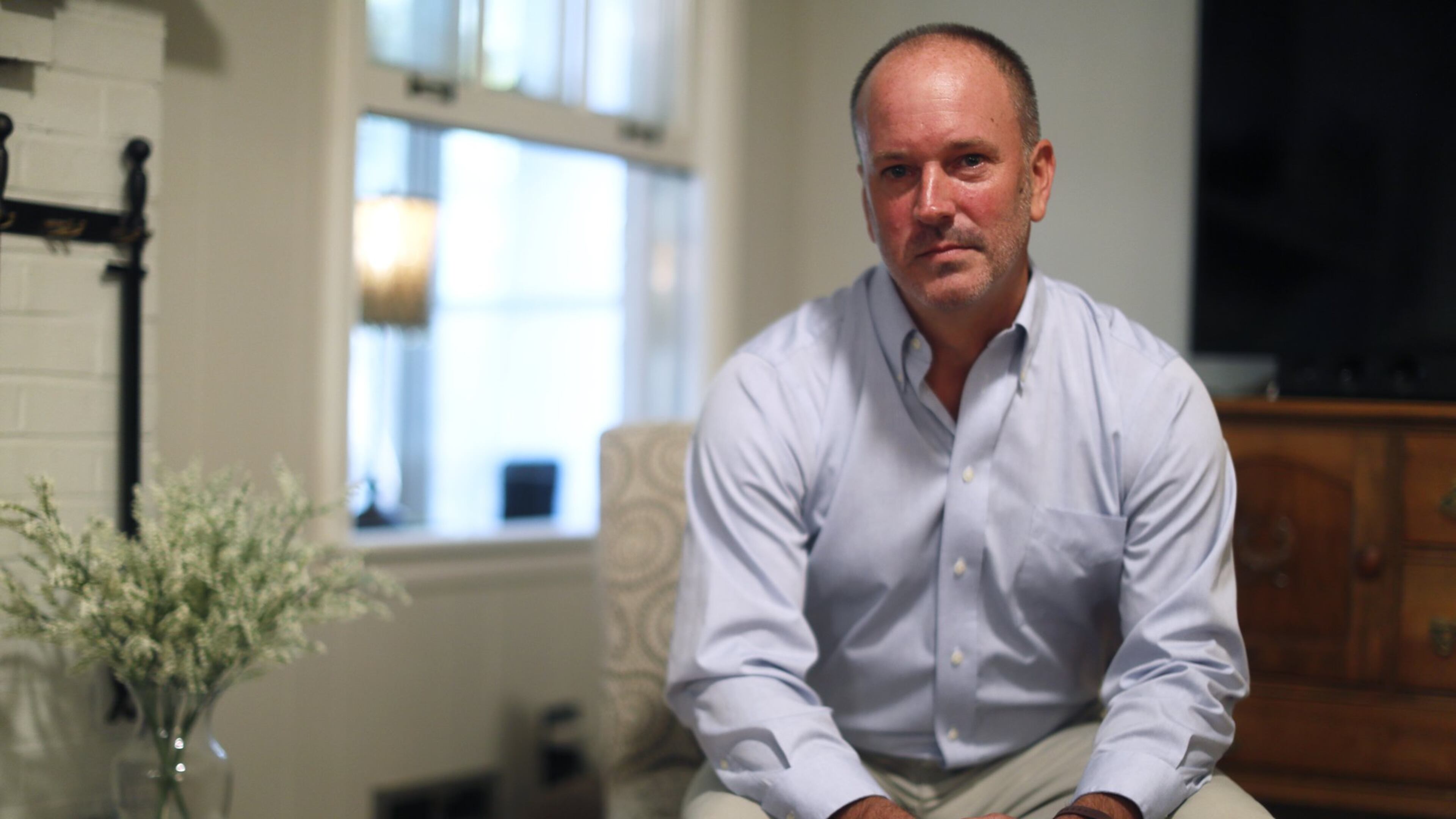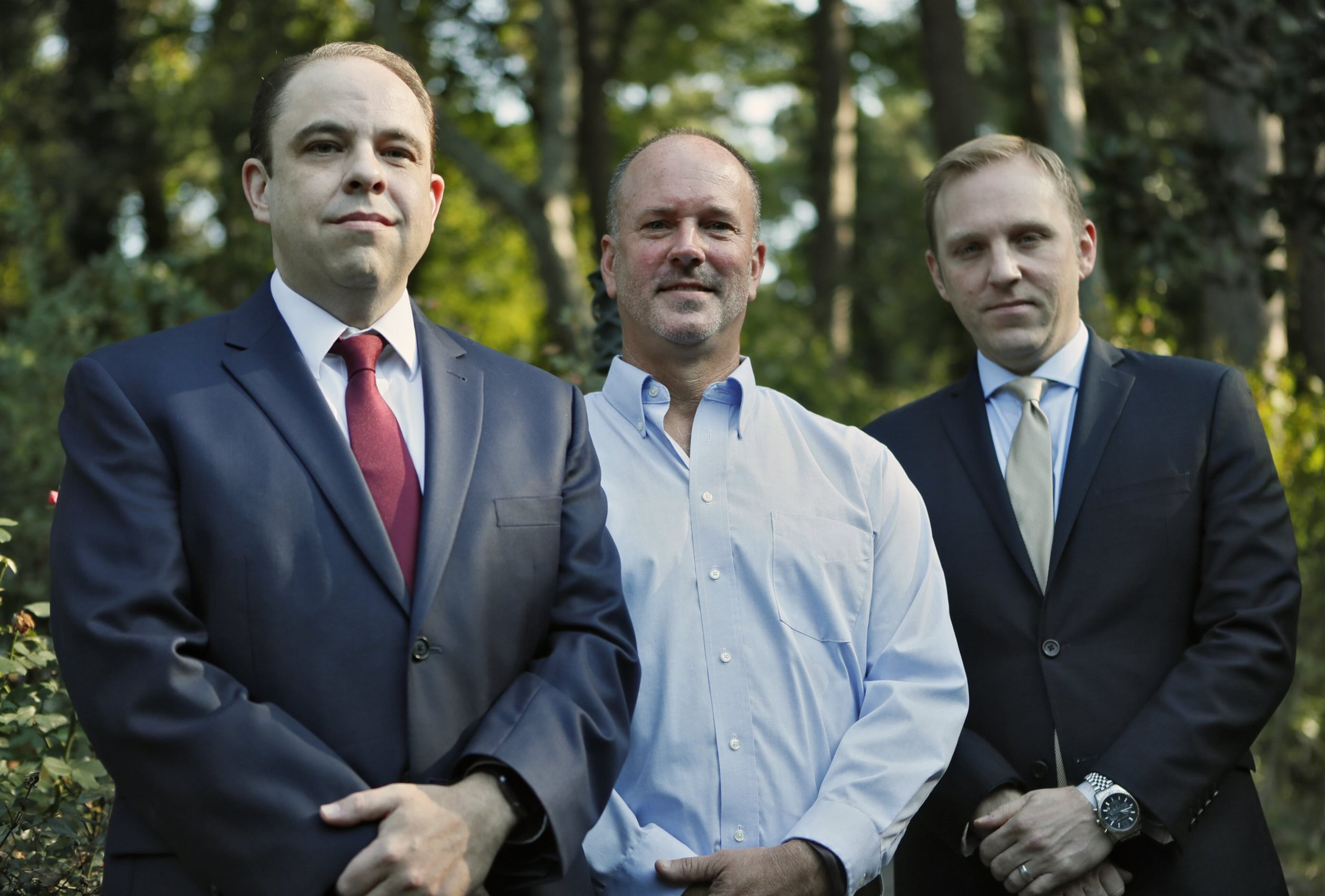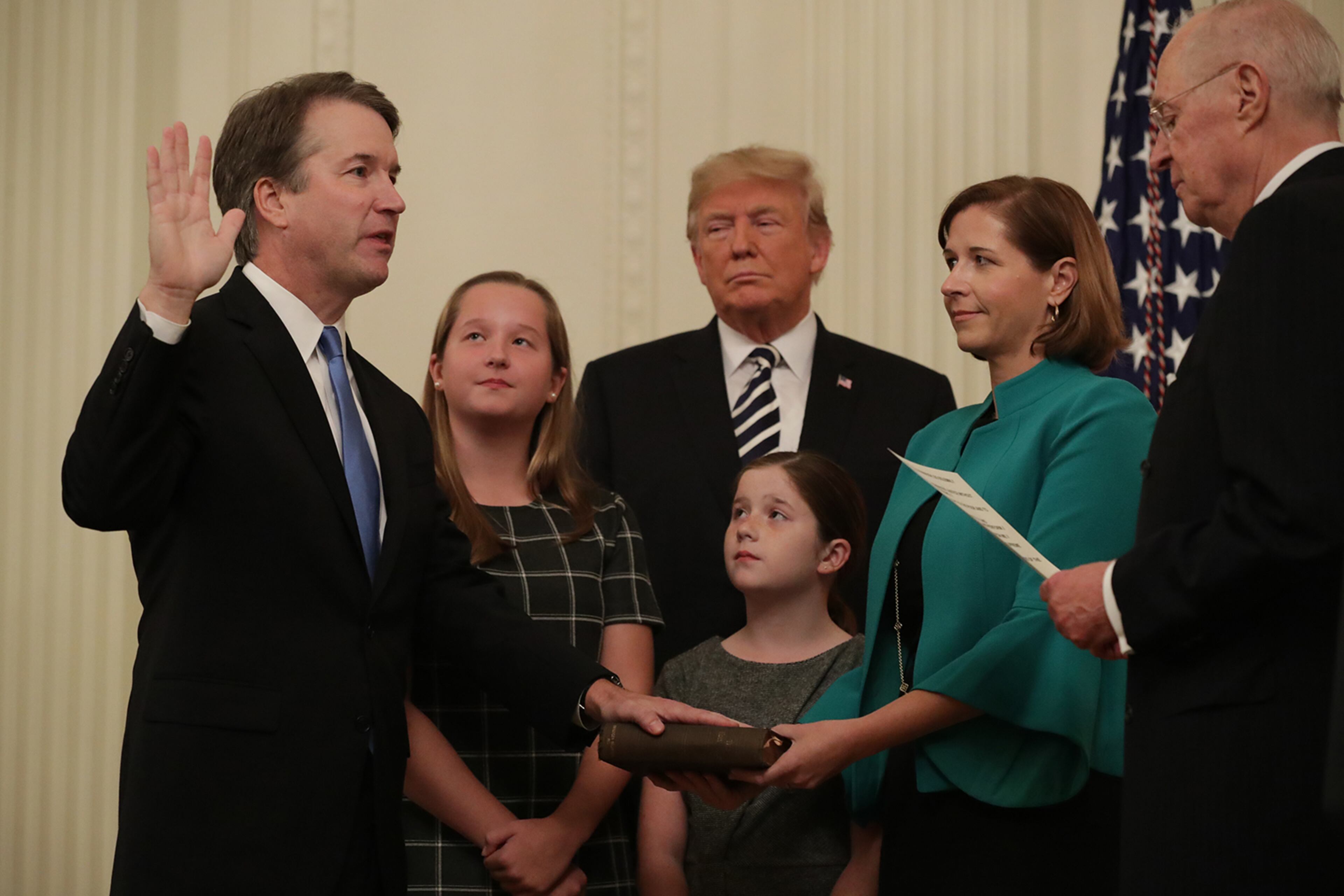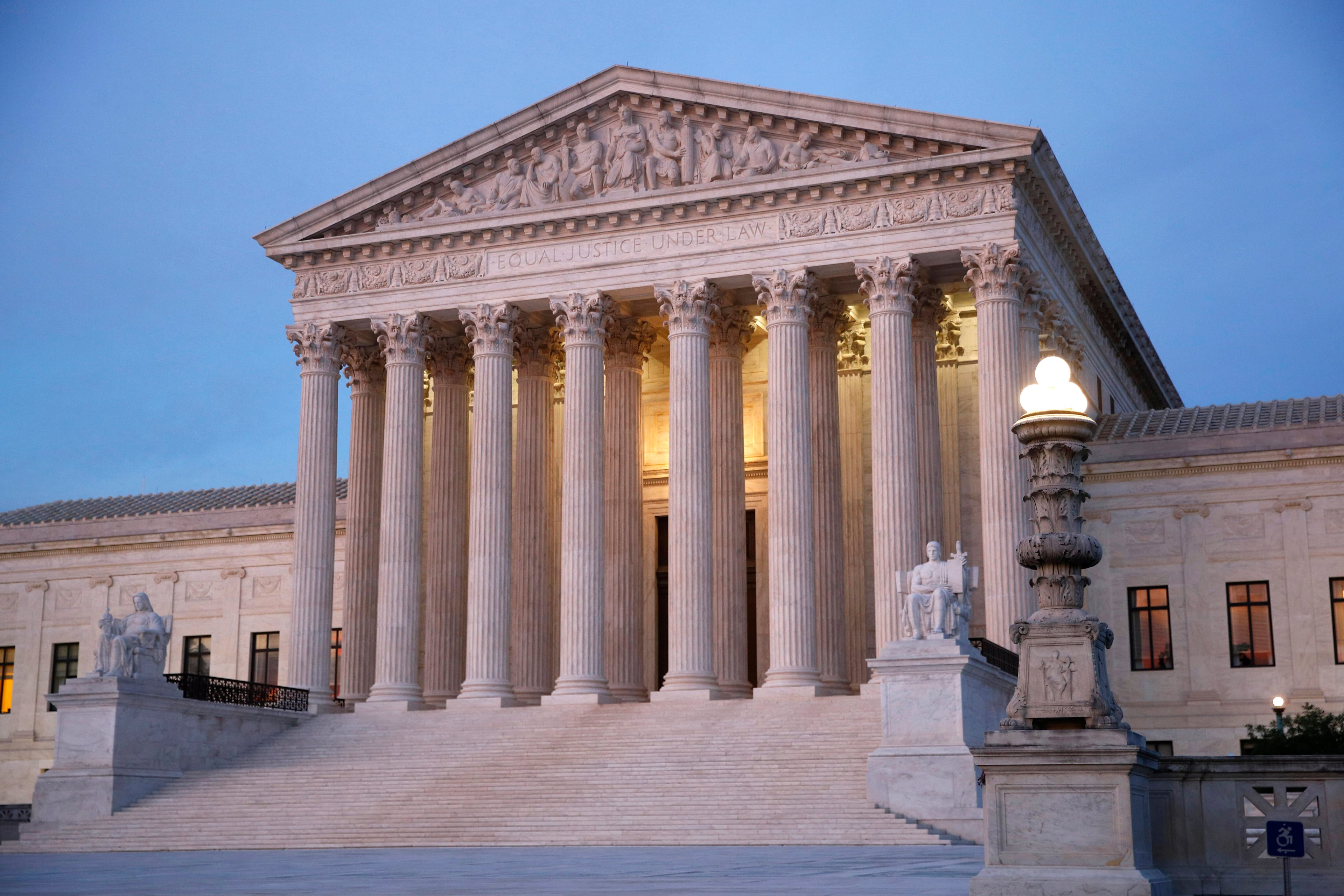Georgia man brings gay rights case to U.S. Supreme Court

Over the past two decades, gays and lesbians have won enormous U.S. Supreme Court victories that pulled the LGBTQ community ever closer to legal equality.
The court overturned criminal sodomy laws in 2003, required the government to extend benefits to gay couples in 2013 and, in its landmark ruling four years ago, legalized same-sex marriage.
Now a Georgia man finds himself at the center of what is expected to be the next big ruling on gay rights, the high court's first with a new, solidly conservative majority of justices.
Gerald Bostock claims he was fired from his job with Clayton County because he’s gay.
His case, to be argued Tuesday, asks the high court to find that Title VII of the Civil Rights Act of 1964 protects millions of gays and lesbians across the country from discrimination in the workplace.
Bostock, 55, says that same law should have protected him.
“I was shocked,” he told The Atlanta Journal-Constitution in a recent interview. “I lost my dream job. I lost colleagues and friends I worked with and enjoyed being around. My whole life was turned upside down.”

The Doraville man pressed his case to the federal appeals courts in Atlanta, which ruled against him. The court said Title VII prohibits employment discrimination on the basis of race, color, religion, sex and national origin, not a person’s sexual orientation.
Clayton County is asking the Supreme Court to uphold that decision.
“When Congress prohibited sex discrimination in employment approximately 55 years ago, it did not simultaneously prohibit discrimination on the basis of sexual orientation,” the county said. “The text of Title VII does not include sexual orientation or homosexuality as a protected class.”
In a statement, Jack Hancock, a lawyer for the county, said, “Mr. Bostock’s sexual orientation had nothing to do with his termination. Mr. Bostock was terminated as a result of an audit of juvenile court funds for which he was responsible.”
Bostock said the allegations are baseless. “I did nothing wrong,” he said.
In their legal briefs, Bostock’s lawyers argue that workplace discrimination based on a man’s sexual orientation occurs when an employer insists on traditional sex roles and behavioral stereotypes. “It is disparate treatment of an employee that would not occur ‘but for’ his sex,’” they said.
Twenty-two states have laws prohibiting discrimination based on sexual orientation. Georgia is not one of them.
Bostock’s case, significant because of its potential ramifications, is also notable because it presents the high court with its first major LGBTQ case since Justice Anthony Kennedy left the bench.

His successor, conservative Justice Brett Kavanaugh, could become a new swing vote that halts the progress of gays and lesbian litigants before the high court, legal experts say.
“If Kennedy were on the court, I have little doubt the plaintiffs would prevail here,” said Eric Segall, a professor at Georgia State’s College of Law. “But Kennedy being replaced by Kavanaugh makes it a much more unlikely outcome.”

At the same time, Segall noted, late Justice Antonin Scalia, once a stalwart of the high court’s conservative wing, authored a 1998 opinion which concluded same-sex sexual harassment can violate Title VII. “Given that Scalia took a broad view of that, it’s possible his disciples, Justice Kavanaugh and Justice Neil Gorsuch, just might do so as well,” Segall said.
Trump Administration weighs in
The Supreme Court will hear Bostock’s appeal along with one involving Donald Zarda, a skydiving instructor in Long Island, N.Y. Zarda, who died in a skydiving accident five years ago, contended he was fired because he’d come out as being gay.
In February 2018, the federal appeals court in New York ruled in Zarda’s favor, saying Title VII prohibits discrimination on the basis of sexual orientation. Zarda’s former company appealed and the high court agreed to hear Zarda’s case as well. (Zarda’s sister and former partner have continued his lawsuit on behalf of his estate.)
Also Tuesday, the Supreme Court will hear a related case pursued by Aimee Stephens, a transgender woman. She contends she was fired by a funeral home in Michigan after she disclosed to her boss she was transitioning from male to female. The federal appeals court in Cincinnati ruled in Stephens’ favor, finding the funeral home engaged in unlawful sex discrimination.

The Trump Administration, in an about-face from Justice Department positions taken under President Barack Obama, is asking the Supreme Court to rule against Bostock, Zarda and Stephens. It is joined by numerous religious and conservative groups. One legal brief was filed by 48 members of Congress, including Republican Congressmen Rick Allen, Doug Collins and Jody Hice from Georgia.
Conversely, the case has attracted filings in support of Bostock and the two other plaintiffs by a number of civil rights groups as well as one by 66 city governments and 28 mayors, including Keisha Lance Bottoms of Atlanta and Ted Lee of Clarkston.
‘I’ve always wanted to help kids’
In 2003, Bostock became the coordinator of Clayton County’s Court Appointed Special Advocate program. The office monitors abused and neglected children for county’s Juvenile Court system.
One of Bostock’s primary roles was to recruit and train volunteers who would be assigned to help monitor children kept in foster care. The volunteers would visit with the children, see how they were doing and pass on their findings to a Juvenile Court judge. The program flourished under Bostock’s leadership, court filings say.

“I loved my job,” Bostock said during an interview at his home where rainbow gay pride and UGA Bulldog flags few outside. “I’ve always wanted to help kids. It’s been my lifelong dream and passion.”
But in January 2013, Bostock joined the Honey Badgers of the gay Hotlanta Softball League.
“From that moment forward, my life changed,” he said. “Within months of me joining my gay softball team, I began getting disparaging comments about my sexual orientation. There were disparaging comments made not only about that but also my promoting the Clayton program within the gay community of Atlanta.”
That included trying to get volunteers, sponsors and donors from the LGBTQ community, he said.
In April 2013, Bostock received notice of the county’s audit.
“That’s when I felt like I was truly being targeted,” he said. “Because I had done my job. I had done it well.”
Two months later, Bostock received his notice of termination from the county.
‘The worst experience of my life’
Out of work for months, Bostock had to sell his house and move out of Clayton County. He lost his medical insurance at a time he was recovering from prostate cancer.
“Yes, this has been the worst experience of my life,” he said, becoming emotional.
“My message to Clayton County is: Homophobia is unacceptable,” Bostock said. “We’re in 2019 and discrimination like that in the workplace is wrong.”
One of his attorneys, Atlanta lawyer Brian Sutherland, said Bostock had nothing but positive evaluations for his work on the court program. And he thinks about the children who lost out because Bostock lost his job.

“That’s the bigger issue here,” Sutherland said. “Discrimination against LGBTQ folks doesn’t just harm them. It harms all the people they serve in their place of employment.”
Bostock now works as a mental health counselor at a metro Atlanta hospital. “I’m making a difference in the lives of adults, not children,” he said.
In his lawsuit, Bostock seeks unspecified damages and his old job back. When asked if he’d actually return, Bostock was unequivocal.
“If I have the opportunity to go back and work with these innocent child victims, you better believe I’d do it,” he said. “That’s what I live for.”
Landmark U.S. Supreme Court rulings in LGBTQ cases
Romer v. Evans (1996) — Struck down an amendment that prohibited cities in Colorado from enacting laws designed to protect gays and lesbians from discrimination.
Boy Scouts v. Dale (2000) — Ruled that the Boy Scouts of America had a constitutional right to bar gays from serving as scoutmasters.
Lawrence v. Texas (2003) — Struck down a Texas law that criminalized consenting homosexual adults from engaging in sexual conducting. The ruling overturned Bowers v. Hardwick (1986), which found Georgia's criminal sodomy law to be constitutional. "Bowers was not correct when it was decided and it is not correct today," Justice Anthony Kennedy wrote for the 6-3 majority.
U.S. v. Windsor (2013) — Struck down a key provision of the Defense of Marriage Act and said the U.S. government must provide benefits to same-sex couples who were married in states that allowed it.
Obergefell v. Hodges (2015) — Ruled that the Fourteenth Amendment's rights to due process and equal protection requires states to license and recognize same-sex marriage.


